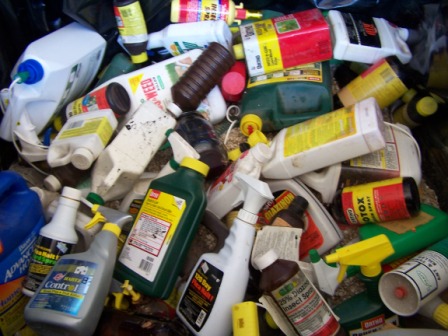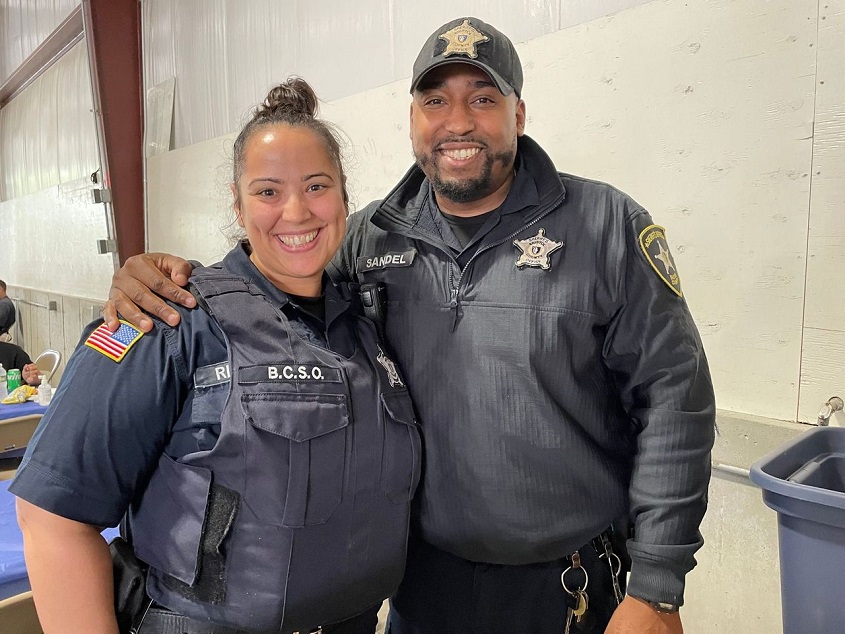The Massachusetts Department of Public Health (DPH) today announced that laboratory testing has confirmed the 8th human case of Eastern Equine Encephalitis (EEE) virus infection, a man in his 50s from northeastern Bristol County.
DPH and the Massachusetts Department of Agricultural Resources (MDAR) continue to emphasize that residents throughout the Commonwealth take personal precautions to prevent mosquito bites as they announced the next round of aerial mosquito spraying in areas of the state at critical and high risk for EEE.
Weather and equipment permitting, MDAR anticipates the next round of aerial spraying to begin as early as Monday evening, September 16, in parts of Hampden, Hampshire, and Worcester counties. While aerial spraying is weather and equipment dependent, above-average evening temperatures next week are likely to permit the application.
Communities that are scheduled to be partially or fully sprayed beginning Monday evening and over the next week include:
– Hampden County: Brimfield, Palmer
– Hampshire County: Ware
– Worcester County: Brookfield, Charlton, East Brookfield, New Braintree, North Brookfield, Southbridge, Sturbridge, Warren, West Brookfield
MDAR is currently conducting aerial spraying in parts of Middlesex, Worcester, and Norfolk counties which is anticipated to continue through the weekend. As weather, temperature, and equipment conditions permit, plans for subsequent rounds of spraying will include critical and high-risk communities in the counties of Bristol, Essex, Franklin, and Plymouth. Residents are encouraged to visit the DPH website at https://www.mass.gov/eee for the latest updates on spraying in their communities.
In addition to the eight human cases of EEE this season in Massachusetts, there have also been eight confirmed cases of EEE this year in animals – seven horses and a goat. There has been one human case of West Nile virus (WNV) this season.
There are 35 communities now at critical risk, 38 at high risk, and 120 at moderate risk for the EEE virus in Massachusetts. On August 29 it was reported that a horse from Granby was infected with the EEE virus. The Department received additional information and has now confirmed that this horse was stabled in Connecticut. As a result, the towns of Granby, Belchertown, Ludlow, Chicopee, and South Hadley have all been reduced to moderate risk. A map of the state’s current EEE risk levels can be found here.
“Even though it is September, it is still mosquito season,” said Public Health Commissioner Monica Bharel, MD, MPH. “We continue to emphasize the need for people to protect themselves from mosquito bites.”
“MDAR continues to conduct aerial spraying and also supports the use of truck-based ground spraying as conditions allow this season,” said MDAR Commissioner John Lebeaux. “We continue to urge the public to use the insect repellants suggested by MA DPH, wear long sleeves and pants, and stay indoors from dusk to dawn when mosquitoes are most active.”
Additionally, MDAR reminds horse owners to promptly vaccinate their horses to ensure proper protection from EEE. If your horse was already vaccinated this year, MDAR advises checking with your veterinarian about a booster. Previously vaccinated horses may quickly respond to a booster vaccine and readily develop protective antibody. Horses of unknown vaccination status should receive two vaccines in the first year. Foals should be vaccinated as soon as they are old enough (3-4 months of age) and need a second booster vaccine for adequate protection.
Local communities are continuing truck-mounted ground spraying for mosquitoes. Spraying for mosquitoes does not eliminate the risk of EEE transmission and the public is asked to continue to follow personal protection practices.
Residents can learn more about EEE and ways to protect themselves on DPH’s website here.
EEE is a rare but serious and potentially fatal disease that can affect people of all ages. EEE occurs sporadically in Massachusetts with the most recent outbreak years occurring from 2004-2006 and 2010-2012. There were 22 human cases of EEE infection during those two outbreak periods with 14 cases occurring among residents of Bristol and Plymouth counties.
EEE virus has been found in 414 mosquito samples this year, many of them from species of mosquitoes capable of spreading the virus to people. An additional 72 mosquitos have tested positive for WNV.
People have an important role to play in protecting themselves and their loved ones from illnesses caused by mosquitoes:
Avoid Mosquito Bites
Apply Insect Repellent when Outdoors. Use a repellent with an EPA-registered ingredient (DEET (N, N-diethyl-m-toluamide), permethrin, picaridin (KBR 3023), oil of lemon eucalyptus [p-methane 3, 8-diol (PMD)] or IR3535) according to the instructions on the product label. DEET products should not be used on infants under two months of age and should be used in concentrations of 30% or less on older children. Oil of lemon eucalyptus should not be used on children under three years of age.
Be Aware of Peak Mosquito Hours
The hours from dusk to dawn are peak biting times for many mosquitoes. Consider rescheduling outdoor activities that occur during evening or early morning in areas of high risk.
Clothing Can Help Reduce Mosquito Bites
Wearing long-sleeves, long pants and socks when outdoors will help keep mosquitoes away from your skin.
Mosquito-Proof Your Home
Drain Standing Water. Mosquitoes lay their eggs in standing water. Limit the number of places around your home for mosquitoes to breed by draining or discarding items that hold water. Check rain gutters and drains. Empty unused flowerpots and wading pools and change the water in birdbaths frequently.
Install or Repair Screens. Keep mosquitoes outside by having tightly-fitting screens on all of your windows and doors.
Protect Your Animals
Animal owners should reduce potential mosquito breeding sites on their property by eliminating standing water from containers such as buckets, tires, and wading pools – especially after heavy rains. Water troughs should be flushed out at least once a week during the summer months to reduce mosquitoes near paddock areas. Horse owners should keep horses in indoor stalls at night to reduce their risk of exposure to mosquitoes. Owners should also speak with their veterinarian about mosquito repellents approved for use in animals and vaccinations to prevent WNV and EEE. If an animal is suspected of having WNV or EEE, owners are required to report to DAR, Division of Animal Health by calling 617-626-1795 and to the Department of Public Health (DPH) by calling 617-983-6800.
For the most up-to-date information, Q&As, and downloadable fact sheets about EEE in multiple languages visit the DPH webpage www.mass.gov/eee.
For questions about aerial spraying, contact the MDAR Crop and Pest Services at (617) 626-1700.
 New Bedford Guide Your Guide to New Bedford and South Coast, MA
New Bedford Guide Your Guide to New Bedford and South Coast, MA







